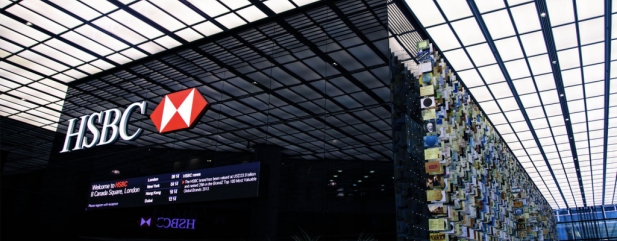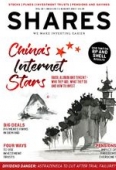Archived article
Please note that tax, investment, pension and ISA rules can change and the information and any views contained in this article may now be inaccurate.
HSBC back to expansion

Despite already being Europe’s largest bank HSBC (HSBA) is definitively back in growth mode.
Its results for its second quarter to 30 June beat consensus forecasts across the board. Its pre-tax profit figure of $5.3bn is, for example, 13% ahead of the estimate from Alastair Ryan, analyst at Bank of America Merrill Lynch. He says that half of the outperformance was delivered by a gain on the sale of Visa.
‘For a bank that was shrinking for almost a decade, we believe that HSBC is back to growth,’ says Ryan.
ROBUST FINANCIAL POSITION
It is also very well capitalised. Its common tier one equity (CET1) is up 0.4% to 14.7% beating the consensus figure of 14.3%. CET1 is basically the size of the bank’s cash reserves against its loans, accounting for riskier assets such as unsecured lending.
The good news for investors is that any capital held above the CET1 figure is liable for return to shareholders and that is what HSBC is doing. It announced on Monday that it would be extending its share buyback scheme by $2bn, bringing the total amount of buybacks since the second half of 2016 to $5.5bn.
This strong capital position has led Jason Napier, analyst at UBS, to predict further returns of capital to shareholders. He says that as HSBC has $13bn above the bank’s management target of 13% CET1, ‘our estimates already assume another $2bn buyback will announced at the third quarter results’.
CONSISTENT DIVIDEND PAYER
With all investments there are risks and Ronit Ghose, analyst at Citi, says that political risks due to some of the markets in which HSBC operates as well as regulatory pressures could impact the bank. He gives the bank a target price of 810p, implying 7.6% upside on the current share price of 760.80p.
HSBC has been a consistent dividend payer, maintaining the $0.51 per share for some time, with Alastair Ryan predicting that figure to stay the same for years to come. HSBC is not the cheapest stock, UBS’ Napier forecasts its price to book value at 1.4-times for 2017. This is at the top end of bank valuations but you get what you pay for.
Important information:
These articles are provided by Shares magazine which is published by AJ Bell Media, a part of AJ Bell. Shares is not written by AJ Bell.
Shares is provided for your general information and use and is not a personal recommendation to invest. It is not intended to be relied upon by you in making or not making any investment decisions. The investments referred to in these articles will not be suitable for all investors. If in doubt please seek appropriate independent financial advice.
Investors acting on the information in these articles do so at their own risk and AJ Bell Media and its staff do not accept liability for losses suffered by investors as a result of their investment decisions.

 magazine
magazine









